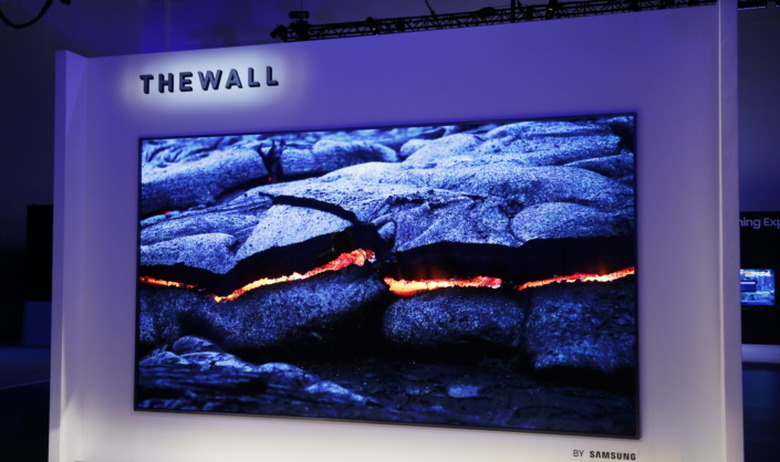Google Assistant Might Come To Samsung TVs In 2019
CES is just around the corner — not that you need to remind tech journalists who are already seeing their email inboxes fill up with cheery missives from PR folks sending some variant of the same message: "Just checking to see if you've got time to meet with my client at CES in a few weeks."
That said, we're also already starting to get a sense of some of the highlights and announcements that will likely be on tap next month, including the possibility that Samsung may choose the annual tech industry confab as an opportunity to announce a big partnership with Google when the tech giant unveils its 2019 TV models.
According to unnamed sources cited by Variety, audio quality is going to be a focus of the company's newest TV models. It's also rumored that Samsung is poised to announce the integration of third-party voice assistants into its newest TVs — voice assistants that include the Google Assistant.
Moving forward with that integration would follow by just a few months the company adding its own Bixby AI-powered voice assistant to the company's 2018 TV models. As Variety notes, however, "the current integration of Bixby on TVs is fairly limited. Consumers can use the voice assistant to control playback of videos, but Bixby can't yet open and control third-party apps." And while Bixby isn't yet open to third-party app developers, Samsung has confirmed that will be happening in 2019.
The Variety piece goes on to point out that by integrating third-party assistants into its TVs, Samsung can bring more capabilities like far-field voice control to TVs that don't have built-in microphones. It's also assumed that Samsung will pull this off similar to the way rivals like LG have integrated assistants. On its TVs, for example, LG's users can access their calendar through Google Assistant, in addition to using Google Assistant to control their smart home devices.
For some extra hints about what we might expect from Samsung and how this all might be implemented, Variety also points out that LG's software handles universal search on its TVs. "This helps TV makers to build commercial relationships with app developers and service providers, and keeps them in control of a key aspect of their smart TV systems," the outlet reports.
